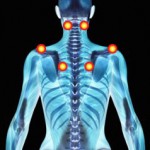 New guidelines published online May 6 in the Canadian Medical Association Journal have codified a number of major changes in fibromyalgia (FM) diagnosis and treatment. The authors of the new guidelines note that FM diagnosis and care have largely shifted to primary care physicians and away from rheumatologists and other specialists.
New guidelines published online May 6 in the Canadian Medical Association Journal have codified a number of major changes in fibromyalgia (FM) diagnosis and treatment. The authors of the new guidelines note that FM diagnosis and care have largely shifted to primary care physicians and away from rheumatologists and other specialists.
Mary-Ann Fitzcharles, MB ChB, from the Division of Rheumatology, McGill University, Montreal, Quebec, Canada, and colleagues writing for the Canadian Fibromyalgia Guidelines Committee said that physicians “must rely on the time-honoured art of medicine” in diagnosing FM, as there are no reliable physical findings or laboratory tests, and that the main treatment goal should be to improve function by relieving the most troublesome symptoms, particularly pain, as they arise.
“The diagnosis of [FM] no longer focuses on counting tender points. Pain in FM is viewed as the chief symptom, with greater acknowledgement of fatigue, unrefreshing sleep, and cognitive symptoms as often part of the clinical presentation,” senior author John Pereira, MD, told Medscape Medical News.
The authors said laboratory tests for suspected FM generally should include only complete blood count, erythrocyte sedimentation rate, C-reactive protein level, thyroid function, and creatine kinase level.
The authors emphasized that FM remains a clinical diagnosis without reliable confirmatory clinical or laboratory tests; that the most important FM symptom is pain that sometimes can be associated with fatigue, disordered sleep, cognitive changes, or mood disorders; that FM can be diagnosed by primary care physicians without specialist confirmation; and that management should be multimodal, “with the understanding that fibromyalgia symptoms fluctuate over time and seldom completely disappear,” and should include strategies for relieving symptoms during disease flares.
Refer Only Difficult Cases
“I agree with the fact that [FM] should be routinely diagnosed by [general practitioners (GPs)] and that only difficult cases should be referred to rheumatologists and pain specialists,” Serge Perrot, MD, PhD, from the Pain Center, Paris Descartes University, Hotel Dieu Hospital, France, told Medscape Medical News. Dr. Perrot was not involved in the study. “If GPs were not so reluctant with this diagnosis, patients would not wait for years to get a diagnosis and would not get so many unuseful investigations. Based on that, in difficult cases, to avoid any misdiagnosis (inflammatory rheumatic disorders like spondyloarthropathies) and any inappropriate treatment, patients should be referred to rheumatologists.”
Others are more cautious. “The reality is that most rheumatologists do not want to be involved in the routine care of [patients with FM]; they are much more comfortable treating rheumatoid arthritis and other autoimmune disorders, ” Robert M. Bennett, MD, professor of medicine and head of the Fibromyalgia Research Group at Oregon Health & Science University in Portland, told Medscape Medical News. He was not involved in the study. “Thus, the care of most [patients with FM] will be done by primary care physicians (some of whom become quite skilled in managing these patients). If a [patient with FM] can find a rheumatologist who has expertise and interest in this condition, this would be, in my opinion, to their advantage.”
Dr. Pereira, who is from the Chronic Pain Centre in Calgary, Alberta, Canada, also pointed out that treatment options for FM have expanded, partly as a result of the shift from seeing FM as a soft-tissue disorder with pain driven by inflammatory signaling. It is now understood to be a neuropathic disorder that includes defects in pain processing.
“For example, there is evidence that certain exercises and cognitive behavioral therapy can help some patients. Also, there are now medications officially approved for the treatment of [FM] in both Canada and the United States. That all said, no single treatment works for every patient, and there is no cure for this condition,” Dr. Pereira said.
Examination of patients with FM for tender points (also known as trigger points) was dropped from both the Canadian guidelines and the American College of Rheumatology criteria.
“It is well known that there is a huge variability in these tender points, according to the physician, the patient, and time point. Tender point count is more related to stress and anxiety. However, tender point remains a clinical interesting finding, demonstrating that allodynia is a main feature in [FM], related to central sensitization, but not at all specific,” Dr. Perrot said.
FM symptoms can be faked, and the guidelines authors advised clinicians to be aware of this possibility, particularly when economic factors such as disability insurance payments might create perverse incentives.
“Therefore, physicians, particularly those adjudicating disability issues, must remain empathetic, but alert and cautious. In addition, although the cause of fibromyalgia remains uncertain, the legal system has allowed for triggering events to be determined as having caused fibromyalgia. In this context, physicians should be cautious when attributing the cause of fibromyalgia to an injury, particularly in the workplace, because this determination may have socioeconomic consequences. Physicians should evaluate the global presentation of the patient, with particular attention to the physical and psychosocial status before the injury,” the authors warn. (Source: Medscape)